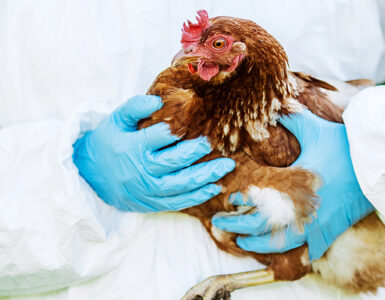According to the National Kidney Foundation, about 37 million Americans have chronic kidney disease, and over 92,000 people are on the waiting list for a kidney transplant. The average wait time for a kidney from a deceased donor is between three and seven years, making living donations an increasingly important option.
Anyone can be a living kidney donor. You do not need to be related to someone in order to donate your kidney to them. Living kidney donors can include spouses, friends, co-workers, acquaintances, or even complete strangers who are a compatible match.
Today, transplants from living donors have excellent patient safety and success rates. Before considering becoming a living kidney donor, it’s important to understand the qualifications required for the donation process to ensure the donation and transplant are both safe and most likely to be successful.
What Are the Qualifications for Living Kidney Donors?
Living kidney donation is when a healthy person donates one of their two kidneys while they are alive to an individual on the national transplant waitlist. A living donor must be healthy with little to no medical issues of their own. Before becoming a living kidney donor, you will need to have testing done to determine if you are healthy enough to proceed. This testing includes a medical, psychosocial and financial evaluation.
Living kidney donation offers great benefits to the transplant recipient including:
- Reduced chance of rejection for the recipient and a higher likelihood of the kidney working longer
- Improved quality of life for the recipient and longer life expectancy
- Potential to help the recipient reduce or avoid dialysis altogether
- Avoidance of years-long wait for a deceased donor kidney
- Shorter recovery times, as living donor kidneys begin working immediately
What makes someone a strong candidate for becoming a living kidney donor? A feeling of altruism and want to help others. Kidney donors must also be in overall good health without significant medical conditions before donating a kidney. The kidney transplant team can help answer questions to determine if you would qualify for living donation.
Here’s more about specific qualifications for living kidney donors:
- At least 18 years old
- Absence of chronic diseases like heart, liver, kidney or lung disease
- Absence of diabetes
- Absence or well controlled hypertension (with the use of little medication)
- No recent history of cancer
- No active infections
- Healthy body mass index (BMI)
- No current alcohol or substance abuse
- No evidence of coercion or pressure to donate
- Considered mentally capable of giving informed consent after undergoing a thorough psychological evaluation
Evaluation and Screening Process
Potential kidney donors undergo a thorough evaluation process to ensure their safety and compatibility with the recipient. The evaluation process includes:
- Initial Screening: Assessing medical history, behavioral history, current health status and suitability for donation
- Comprehensive Medical Testing: Blood tests, urine tests, imaging scans and other evaluations, depending on the age of the potential donor, to ensure overall health and compatibility
- Psychological Evaluation: Assessing mental health, emotional readiness, willingness to donate at an individual’s own free will and understanding of the donation process
- Education and Counseling: Providing education about the risks and benefits of donation, as well as the transplant process for the recipient
After undergoing a comprehensive evaluation, the transplant team conducts a final review of all test results and assessments to determine the donor’s suitability for donation.
Additionally, each donor is assigned an Independent Living Donor Advocate (ILDA) to safeguard their interests and needs throughout the donation process. Confidentiality measures are also strictly upheld to protect the donor’s privacy and the confidentiality of their evaluation process and information.
Kidney Donation Surgical Procedure and Recovery
The surgery for living kidney donation is typically performed laparoscopically, using minimally invasive techniques. The surgeon makes several small incisions, along with one slightly larger incision, to remove the donor’s kidney.
Compared to traditional open surgery, donors usually experience less pain, a shorter recovery time and less scarring with laparoscopic surgery.
After the procedure, donors typically stay in the hospital for two to three days, and the recovery period typically lasts between two to six weeks. During this time, donors sometimes experience some discomfort and fatigue, but they are usually able to resume their normal activities gradually as they recover.
Options for Incompatible Kidney Donors
To be a match, a living donor needs to have blood and tissues similar to the person receiving the kidney. This is checked with three important blood tests: blood typing, tissue matching and crossmatching. Sometimes, even if someone wants to donate, they may not be a match.
Stony Brook Medicine, for example, works with the United Network for Organ Sharing (UNOS) in their Kidney Paired Donation program to help people get a kidney, even if their original donor isn’t a match. This program looks at the UNOS database to find a kidney from one donor and pair it with someone who needs it. The result is that incompatible donors may still be able to contribute through kidney-paired donation. Stony Brook also looks at other potential donors and recipients within our own center for potential matches.
Stony Brook Medicine offers specialized care and support for both transplant recipients and living donors. With over 630 transplants using living donors to date and excellent safety and success rates, living donation is a vital option for those in need of a kidney transplant. Between 2023 and 2024, an impressive one-third of kidney transplants performed by Stony Brook Medicine came from living donors. If you’re considering becoming a living donor, reach out to the Kidney Transplantation Services at Stony Brook Medicine team to learn more about the process and how you can make a difference in someone’s life.











